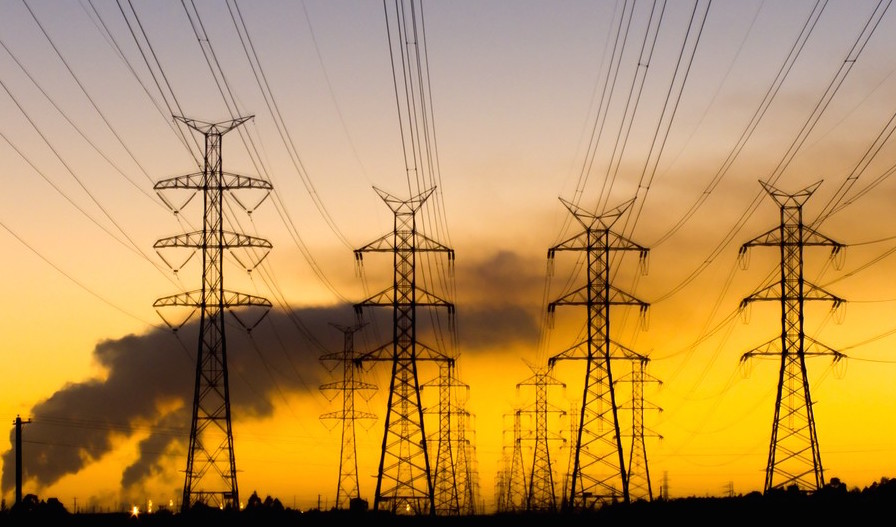Despite promises made by President Muhammadu Buhari to provide Nigerians with 10,000 Megawatts of electricity in 2016, power generation still stands at 3,871MW.
Investors King gathered that the Transmission Company of Nigeria (TCN) failed to allocate 1,357MW of electricity from a paltry 3, 871MW generated on Sunday to power distribution companies (DisCos).
In a data report generated by Punch from the division of TCN, Nigerian Electricity System Operator, nine DisCos out of 11 were on Sunday allocated a total of 2, 514MW, leaving 1,357 unallocated.
A breakdown of the allocation for Sunday showed that Abuja DisCo received a total of 289.92MW; Benin DisCo, 226.89; Eko DisCo, 377.31MW; while 251.89MW was allocated to Enugu DisCo. Ibadan DisCos got an allocation of 348.73MW while Ikeja DisCo received the highest load of 478.15MW.
Jos DisCos got the lowest allocation of 138.66MW, Kaduna DisCos received 201.68MW, while Kano DisCos got 201.68MW.
In the last two years, Nigeria’s power generation has been on a record low of not up to 4000MW. The DisCos have most times, dragged TCN for weak transmission lines, low allocation, liquidity gap and others. The TCN, on the other hand, sometimes accuses the DisCos of load rejection.
Although the country’s national grid has a 13,014.14MW capacity, the GenCos generate a meagre 7,652.6MW, while TCN has capacity to wheel 8,100MW.
Experts say Nigeria needs at least 30, 000MW electricity for its over 200 million population to reach sufficiency. The national peak forecast is 19,798MW.
The highest generation ever achieved was 5801.6MW, and that was two years ago.
In a relative situation, the Port Harcourt Electricity Distribution (PHED) has decried the incessant attacks on its facilities in the four states under its jurisdiction.
The company said it was bothered by the recent damage of electrical facilities belonging to the Transmission Company of Nigeria in Cross River State. The Head, Corporate Communications, PHED, John Anonyai, in a statement released in Port Harcourt on Tuesday, stated that the damage caused blackouts in some parts of Calabar, the state capital.
The statement read: “The management of the Port Harcourt Electricity Distribution (PHED) Plc uses this medium to express her displeasure over the incessant vandalism of electric power facilities in its franchise, particularly the recent case responsible for the power outage in Cross Rivers State.
“This shameful act of vandalism that has rocked Calabar and its metropolis occurred about a month ago and has completely deprived deserving customers access to electricity services across the state.
“Historically, this is not the first time that heartless vandals are targeting such facilities without fear of being caught or electrocuted despite the heavy radiation of power transmitted from the towers.
“Painfully, for every act of vandalism which interrupts service delivery abruptly, PHED is always held liable with different sides to the story without facts as we currently experience in Calabar over this incident.”
According to Anonyai, residents of Calabar had been enjoying relative supply before the black-out as opposed to the current falsehood peddled by a sect of unknown faces whose plan was to trigger an unwarranted backlash against the company.
“It is pertinent to give a clue that the vandalized facilities at Oku Iboku belong to the Transmission Company of Nigeria.
“This, notwithstanding, as a responsible company that values the needs and comfort of her esteemed customers particularly in times like this, the company has been collaborating with TCN to restore supply.”
“It is no longer business as usual as the company will explore every single regulatory window to ensure collections and will only resort to disconnection where customers have clearly demonstrated recalcitrance by disregard to repeated demand and reminders to pay their bills,” PHED Managing Director/Chief Executive Officer, Dr Henry Ajagbawa said in a statement.
“We therefore appeal to our esteemed customers to ensure they pay their bills as at when due while hands are on deck to ensure continuous supply of uninterrupted power to the people of Cross River State and other franchise areas,” he added.
With almost nine years of privatisation, the Federal Government said it had spent over N2tn on resolving decades of rot in the power.


 Forex3 weeks ago
Forex3 weeks ago


 Naira2 weeks ago
Naira2 weeks ago
 Billionaire Watch2 weeks ago
Billionaire Watch2 weeks ago




 Naira3 weeks ago
Naira3 weeks ago




 Naira2 weeks ago
Naira2 weeks ago




 Naira1 week ago
Naira1 week ago




 Naira4 weeks ago
Naira4 weeks ago




 Naira4 weeks ago
Naira4 weeks ago

















